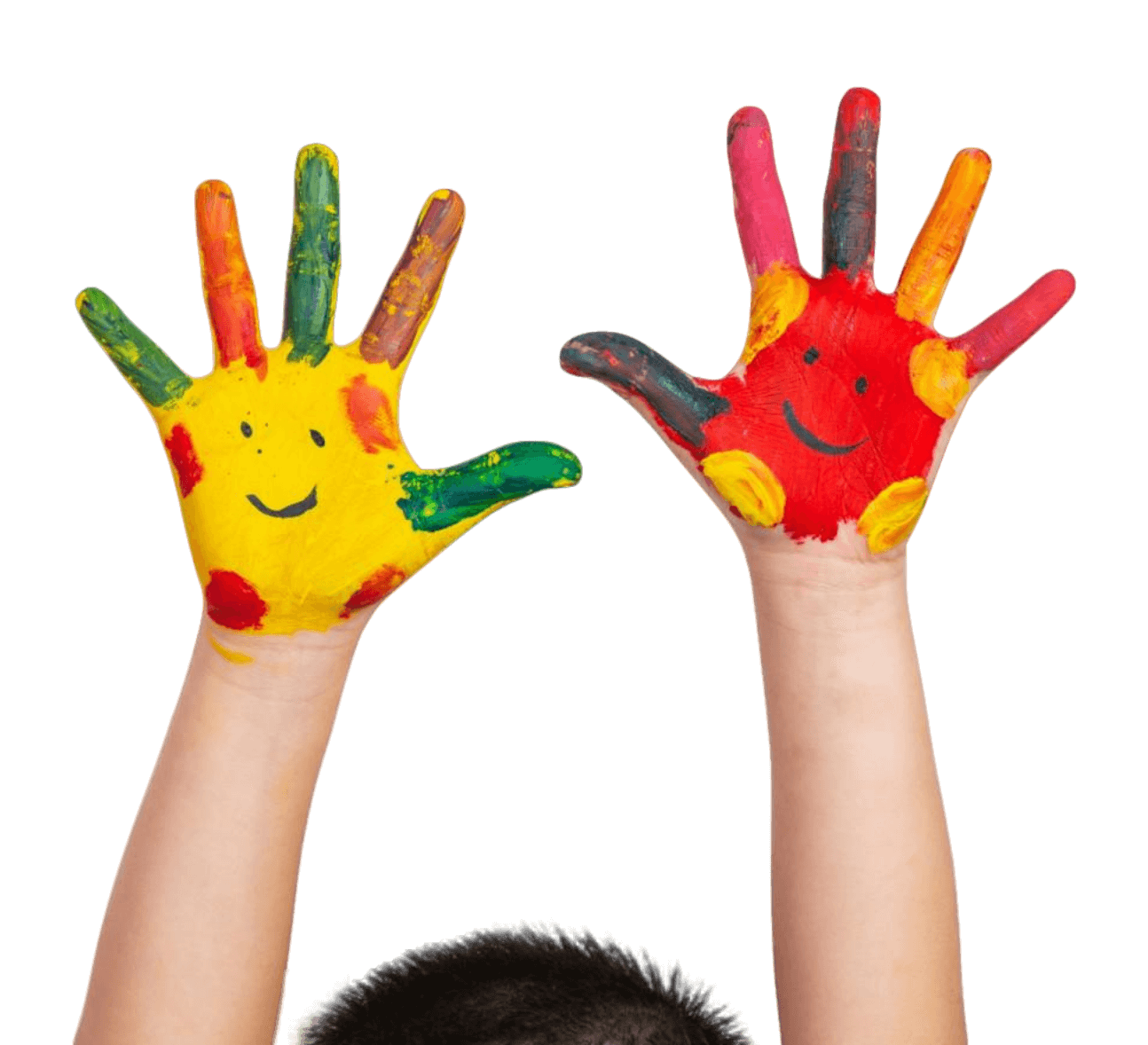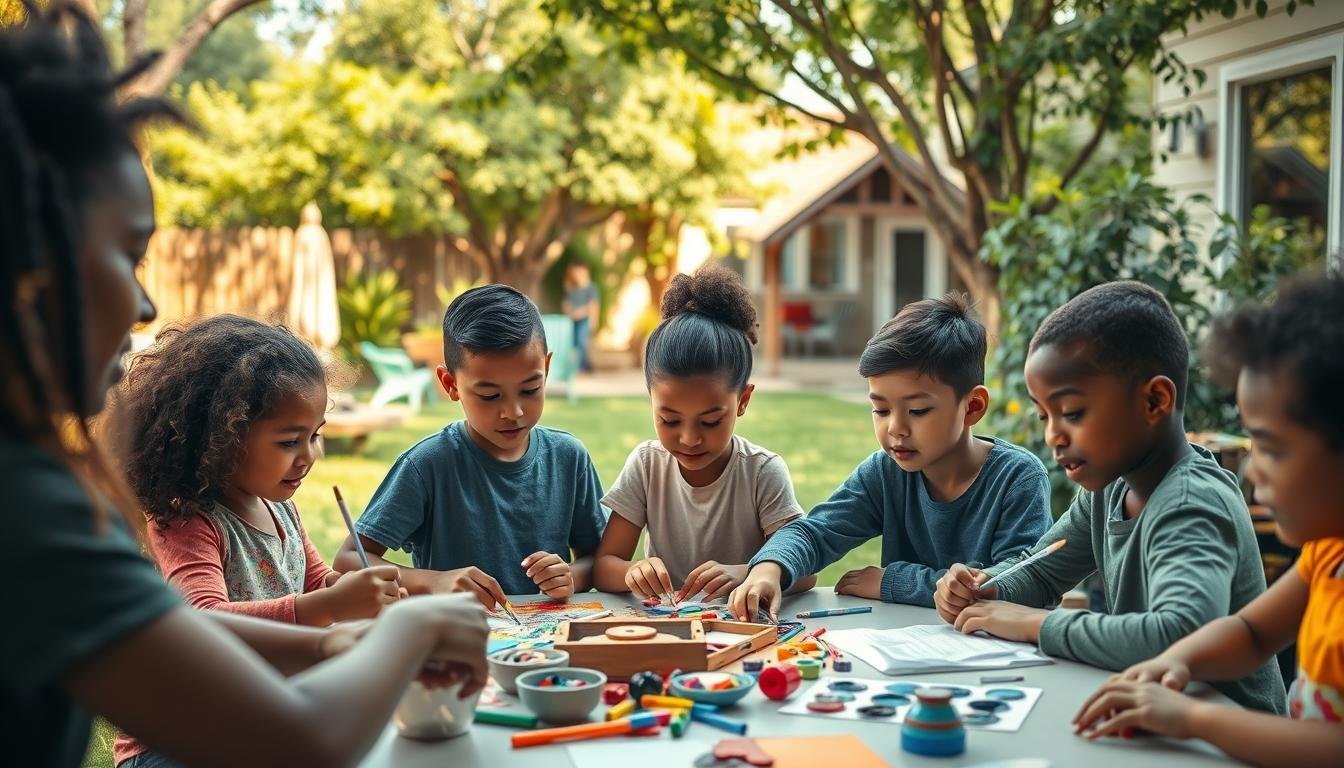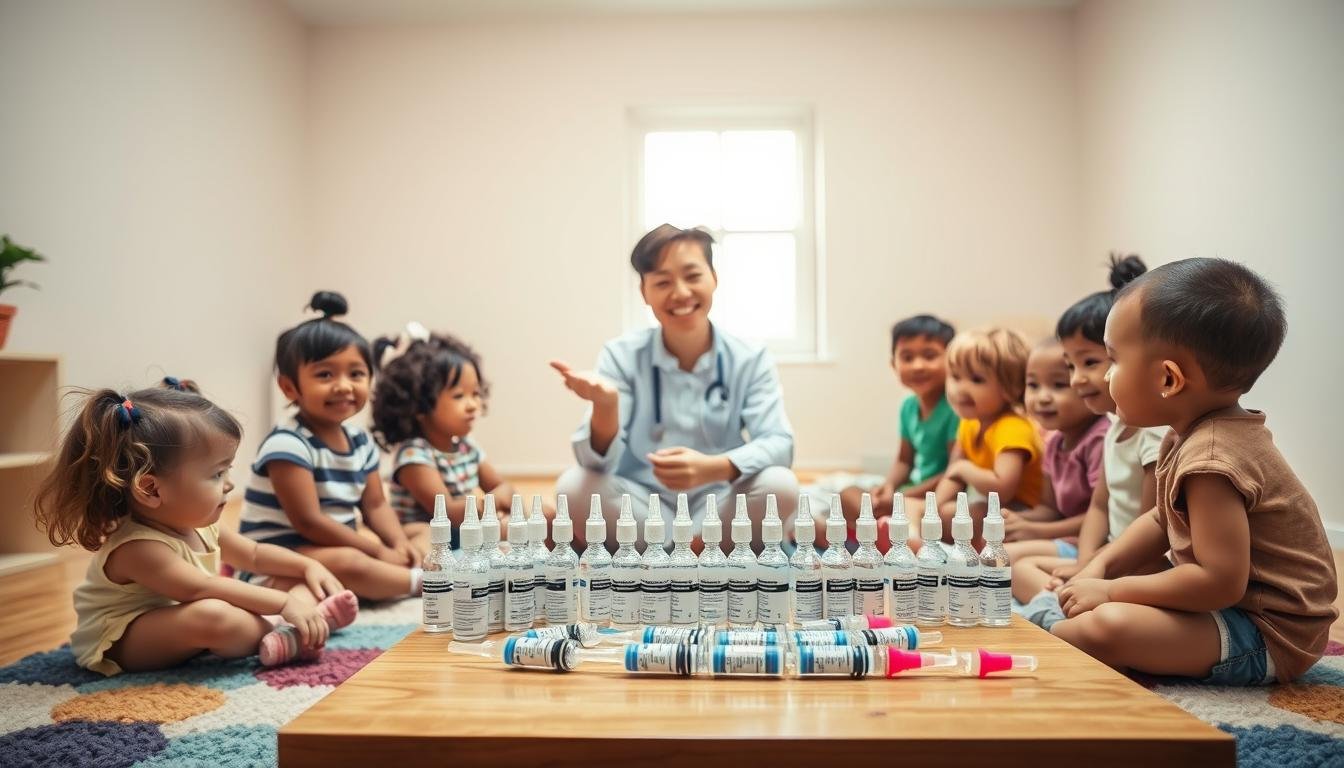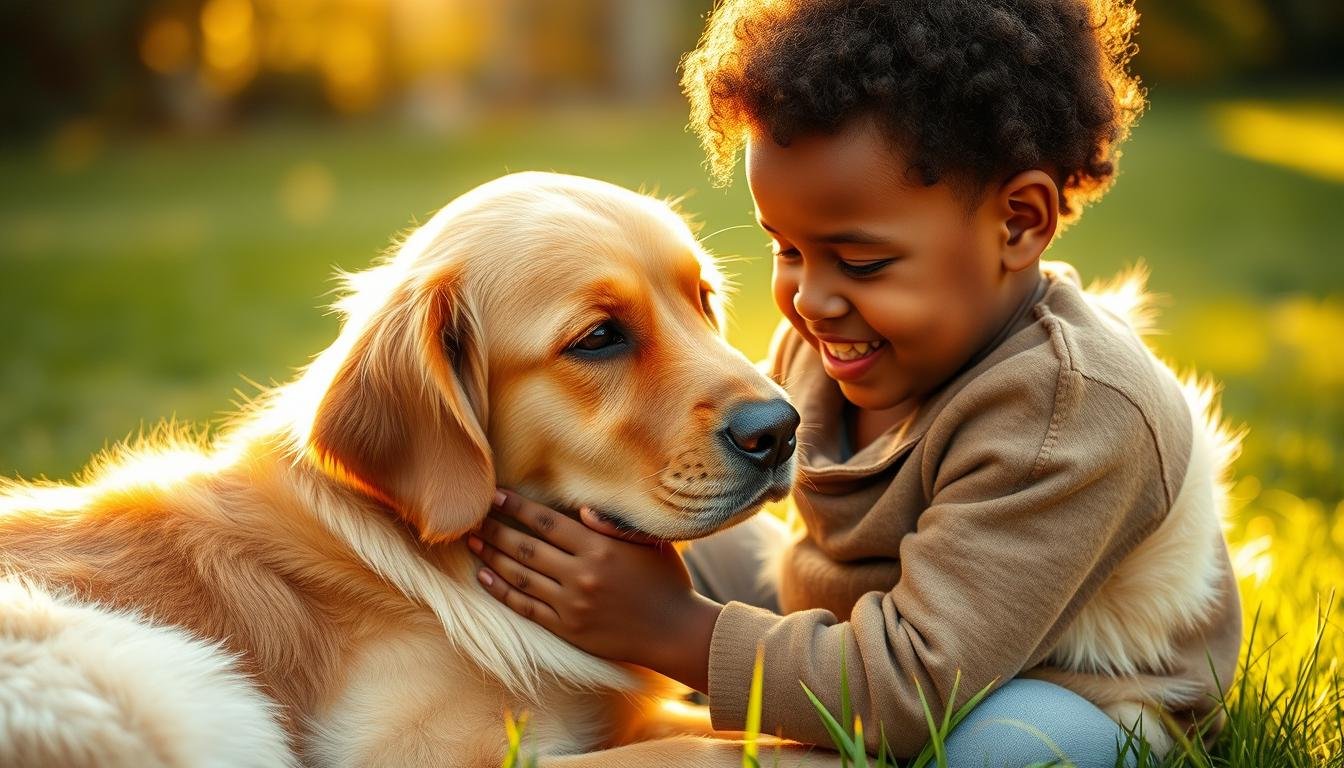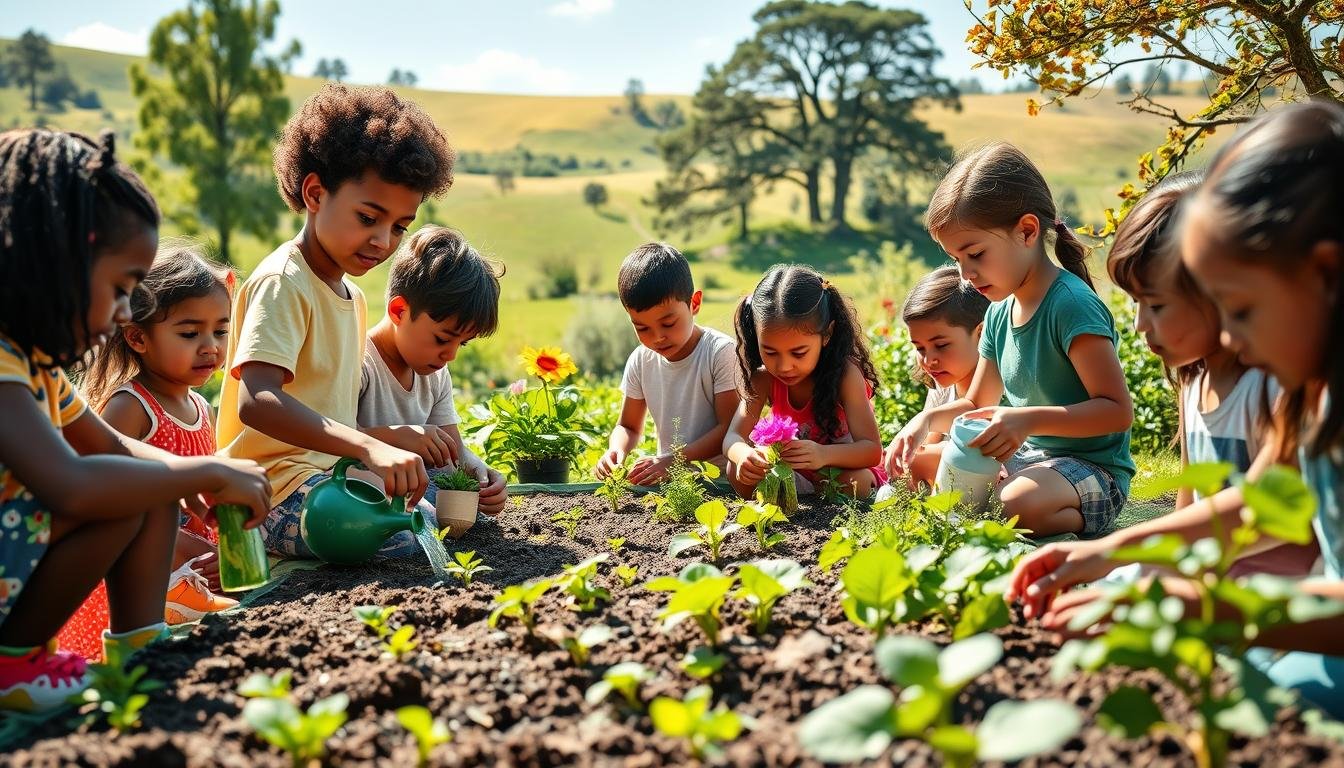Child playdates are often seen as just fun. But have you thought about how they can help kids make friends and grow socially? Especially for children with special needs, these playdates are crucial. They are more than playtime. They offer kids a chance to talk freely, understand each other, and spark genuine connections between kids.
When we plan playdates around what kids love, we welcome everyone. This helps children bond naturally. Whether it’s with arts or games, these playdates help kids learn to socialize. As adults, we need to pay attention to what interests our children. We should guide them towards activities that are fun and help them learn and grow emotionally.
This is not just about kids sharing or taking turns. It is about setting up moments for them to work together and truly become friends.
Understanding the Impact of Interest-Driven Playdates on Child Development
Interest-driven playdates do more than provide fun; they play a big part in child development. By choosing activities that match what children love, we not only keep them interested. We also help grow their feelings and how well they get along with others. Looking at how these playdates affect kids, it’s clear they help with making friends and growing as a person.
Children dive deeper into play when it reflects their interests. This makes them more eager to join in and keep going, which is key for getting better at social skills. It could be acting out stories or solving puzzles together. Each kind of play builds important emotional and teamwork skills.
These playdates also teach kids valuable life lessons like making friends, sharing, and figuring out problems. Growing these skills early on is crucial. It helps them become more emotionally smart and socially skilled. This is very important for their success both in school and life later on.
Knowing how these play-focused meetups can help, guides adults in planning better playdates. They can aim to improve understanding, working together, and showing respect. These are all important for getting along with others. By focusing on these areas, we not only help kids develop well. We also lay the groundwork for their future ability to connect with others.
Identifying Shared Interests Among Kids
Finding what kids like in common is key for great playdates. By identifying shared hobbies, we make get-togethers more than just fun. They turn into lively, inclusive places where all kids feel part of the action.
To plan these playdates, we must understand what each child enjoys. Whether it’s sports or arts, getting to know their interests lets us tailor gatherings that excite everyone. This approach not only makes events fun but helps kids connect on a deeper level.
| Interest Type | Benefits |
|---|---|
| Sports | Enhances teamwork and communication skills |
| Music | Facilitates creative expression and collaboration |
| Clubs (e.g., chess, robotics) | Encourages active socialization in a focused environment |
Knowing and including these shared interests makes our playdates better. Each event is a chance for kids to find common interests, learn new things, and make friends that last.
Genuine Connections Between Kids: The Heart of Interest-Driven Playdates
At the heart of interest-driven playdates is a chance to create authentic children connections. These aren’t just regular meetings, but key moments where kids learn to connect with others deeply. They help kids bond with peers and make friends in a fun, relaxed setting.
When kids share interests, their play becomes more cooperative and meaningful. This helps them develop nurturing empathy, understanding each other’s feelings better. These meaningful playdate interactions are important for learning social skills they’ll use all their lives.

Creating spaces where kids openly share and explore makes for more authentic children connections. This is what we aim for with interest-driven playdates. Encouraging kids to appreciate each other’s differences boosts empathy and understanding, key for strong relationships later on.
In summary, interest-driven playdates are key for kids’ social growth. They learn to enjoy making friends with similar hobbies. This not just improves their social life now, but helps them form lasting, empathetic friendships later.
Planning and Organizing Playdates Around Common Interests
When it comes to planning for kids, nothing beats a well-planned playdate. We know each playdate is more than just fun. It’s a chance for kids to interact, learn, and grow. The main goal is to match activities with what each child likes. This makes sure they have real fun and connect well.
To make this happen, choosing the right activities is key. Say your child adores art. A playdate filled with craft-making can boost creativity. Or, if they’re into dinosaurs, a day spent pretending to be paleontologists can be both fun and educational.
- Initial Planning: Talk to other parents to find out what their kids like and any allergies. This makes sure everyone is happy and safe.
- Setting the Agenda: Make a flexible plan of what you’ll do based on what the kids enjoy. This keeps things organized and the kids interested.
- Activity Coordination: Get all the stuff you need ready before the day. This could be art materials, blocks, or dress-up costumes, making the playdate go smoothly.
- Expectation Management: Let your child know what to expect. This way, they feel secure and look forward to it.
Following these steps helps make playdates both fun and rewarding. By picking the right activities and creating a supportive space, we give kids experiences that positively shape them.
Incorporating Educational Elements into Playdates
Playdates are often just about fun. But what if we added a learning twist? Imagine educational playtime mixed with cognitive skill enhancement. By adding developmental activities and learning through play, kids gain socially and intellectually.
Structured games can be a key to this. They’re not just regular games. These games make kids solve problems, communicate well, and work as a team. Kids end up using their brains in new ways, making playtime way smarter.
- Puzzles make kids think about patterns and shapes, giving their brains a good workout.
- Arts and crafts let kids be creative. They also improve their hand skills and how they see things.
- Storytelling sessions improve kids’ language skills and help them understand other cultures better.
This approach doesn’t just help a kid grow alone. It also builds a sense of community and teamwork. Learning turns into a fun, social thing.
Fostering Inclusivity and Understanding Among Diverse Groups of Kids
We think making spaces where different kinds of kids feel included is very important. When we plan playdates that respect everyone’s culture and diversity, we help create friendly social places. These meetings are not only for fun. They teach kids important skills for living in a world with many different people.
Imagine this—kids from different places learn from each other by sharing their cultures, ideas, and stories. This makes their social skills better. It also helps them respect and understand differences. It’s about sharing life, not just toys and games.
- Start by explaining to your child why it’s good to include everyone, no matter where they’re from or what they can do.
- Choose activities everyone can join in on, thinking about what all children can enjoy and take part in without feeling left out.
- Encourage kids to bring something from their culture to playdates. This can help start talks about diversity and including others.
- Show kids how to ask polite questions about what makes us different. This helps everyone learn and respects each other’s uniqueness.
As parents and caregivers, we should do more than just arrange these playdates. We should join in and help guide the kids to be inclusive and respectful. By doing this, we’re not only making the playdate better. We’re also helping to make a kinder and more welcoming world for everyone.
Overcoming Challenges and Handling Conflicts During Playdates
When kids get together to play, conflicts might pop up. The key is to handle these conflicts in a way that helps kids grow and learn. It’s important to teach them how to solve problems together, with understanding and teamwork.
Start by teaching kids to talk about their feelings honestly. They should use “I feel” statements to share without making others defensive. This teaches them to understand others’ viewpoints. It makes them more empathetic and helps them see past their own frustrations.
Besides, showing kids how to handle disagreements is crucial. They learn from watching adults manage conflicts smoothly. It teaches them that arguments are part of life but can be solved in positive ways.
Here are some tips to deal with conflicts during playdates:
- Make sure to set clear rules so everyone knows what’s expected.
- Create a calm-down space for kids to take a break if needed.
- After a conflict, have a chat about what happened. This helps avoid future problems.
To wrap up, conflicts at playdates are bound to happen. Yet, they don’t have to spoil the fun or the learning. By teaching kids how to resolve conflicts and solve problems, we give them skills to navigate social challenges smoothly and with kindness.
Measuring the Success of an Interest-Driven Playdate
To judge if an interest-driven playdate went well, look for improved social skills progression. Fun moments also mark a positive playdate. To fully understand these playdates, it’s good to check both the numbers and the personal stories.
Checking playdate outcomes can be done by watching and listening to what the kids and parents say afterwards. Seeing kids share, play, and solve issues shows if they’re growing socially. Plus, thoughts shared by kids and their parents after playdates offer deep insights into its effects.
By looking at playdate details, we can link them to better friendships. A study found here shows planning playdates often helps kids become more liked and build lasting friendships.
| Aspect | Indicator | Expected Outcome |
|---|---|---|
| Communication | Frequency and quality of exchanges | Increased understanding and empathy amongst children |
| Sharing activities | Participation in joint tasks | Improved cooperation and fewer conflicts |
| Resolution of conflicts | Approaches used by children | Progress in conflict management skills |
| Feedback from parents | Observations post-playdate | Positive reports of enjoyment and desire for subsequent playdates |
Assessing play effectiveness in these ways helps us see the joy and lasting good it brings. This method shows how playdates help kids build important social skills for the future.
Expanding the Circle: From Playdates to Lasting Friendships
Playdates are more than just fun; they’re key to making long-term friends. Parents play a crucial role in this. We can help our kids make friends that last by organizing playdates around what they love.

Helping our kids make more friends gives them the tools to easily handle social situations. With every good playdate, they learn to talk, share, and solve problems. These are important for keeping friends for life. Encouraging them to stay in touch outside of playdates makes their friendships stronger.
- Regular contact through messaging or video chats can keep the bond alive.
- Planning future group activities can give kids something to look forward to together.
- Encouraging kids to share personal milestones promotes a sense of belonging and team spirit.
Keeping up these friendships takes work, but the rewards are huge. From broadening their social circles to deepening bonds, every playdate builds a strong social foundation for our kids.
Conclusion
We’ve explored how playdates based on shared interests can deeply influence child development. These gatherings help kids build important social skills and start lasting friendships. Each playdate creates a special space where inclusivity, understanding, and joy blossom. This gives children a sense of community support early in their lives.
At Kids Miracle Steps services, we’re experts at setting up playdates that meet each child’s needs, especially for those with special requirements. We focus on creating safe and welcoming environments where children can freely express themselves. Giving parents and caregivers the tools to create these moments is key to fostering a supportive community for your child’s growth and happiness.
In closing, we invite you to discover what Kids Miracle Steps services offers. Each playdate here is a big step in enriching your child’s social life. Let us join you in crafting a strong network of peers and community support for your child. Together, we’ll make sure every child’s unique qualities are celebrated.

